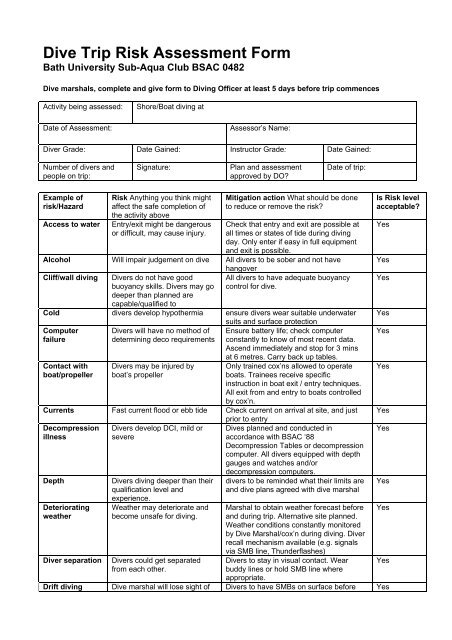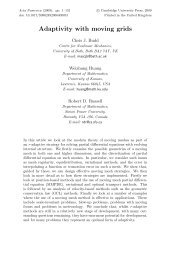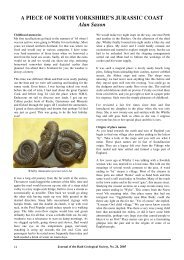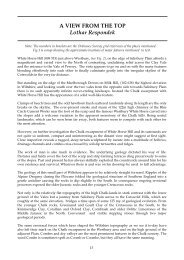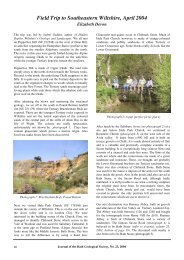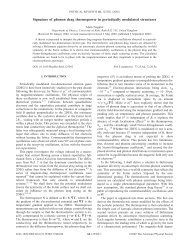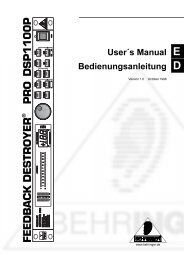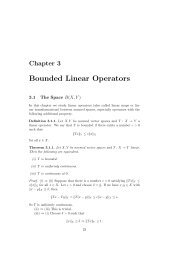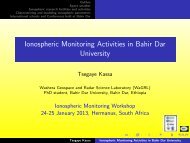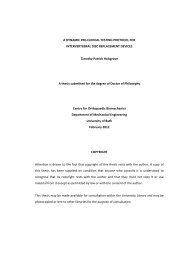Dive Trip Risk Assessment Form - Student subdomain for University ...
Dive Trip Risk Assessment Form - Student subdomain for University ...
Dive Trip Risk Assessment Form - Student subdomain for University ...
You also want an ePaper? Increase the reach of your titles
YUMPU automatically turns print PDFs into web optimized ePapers that Google loves.
<strong>Dive</strong> <strong>Trip</strong> <strong>Risk</strong> <strong>Assessment</strong> <strong>Form</strong><br />
Bath <strong>University</strong> Sub-Aqua Club BSAC 0482<br />
<strong>Dive</strong> marshals, complete and give <strong>for</strong>m to Diving Officer at least 5 days be<strong>for</strong>e trip commences<br />
Activity being assessed: Shore/Boat diving at<br />
Date of <strong>Assessment</strong>: Assessor’s Name:<br />
<strong>Dive</strong>r Grade: Date Gained: Instructor Grade: Date Gained:<br />
Number of divers and<br />
people on trip:<br />
Example of<br />
risk/Hazard<br />
Signature: Plan and assessment<br />
approved by DO?<br />
<strong>Risk</strong> Anything you think might<br />
affect the safe completion of<br />
the activity above<br />
Access to water Entry/exit might be dangerous<br />
or difficult, may cause injury.<br />
Date of trip:<br />
Mitigation action What should be done<br />
to reduce or remove the risk?<br />
Check that entry and exit are possible at<br />
all times or states of tide during diving<br />
day. Only enter if easy in full equipment<br />
and exit is possible.<br />
Is <strong>Risk</strong> level<br />
acceptable?<br />
Alcohol Will impair judgement on dive All divers to be sober and not have<br />
hangover<br />
Yes<br />
Cliff/wall diving <strong>Dive</strong>rs do not have good All divers to have adequate buoyancy Yes<br />
buoyancy skills. <strong>Dive</strong>rs may go<br />
deeper than planned are<br />
capable/qualified to<br />
control <strong>for</strong> dive.<br />
Cold divers develop hypothermia ensure divers wear suitable underwater<br />
suits and surface protection<br />
Yes<br />
Computer <strong>Dive</strong>rs will have no method of Ensure battery life; check computer Yes<br />
failure<br />
determining deco requirements constantly to know of most recent data.<br />
Ascend immediately and stop <strong>for</strong> 3 mins<br />
at 6 metres. Carry back up tables.<br />
Contact with <strong>Dive</strong>rs may be injured by Only trained cox’ns allowed to operate Yes<br />
boat/propeller boat’s propeller<br />
boats. Trainees receive specific<br />
instruction in boat exit / entry techniques.<br />
All exit from and entry to boats controlled<br />
by cox’n.<br />
Currents Fast current flood or ebb tide Check current on arrival at site, and just<br />
prior to entry<br />
Yes<br />
Decompression <strong>Dive</strong>rs develop DCI, mild or <strong>Dive</strong>s planned and conducted in<br />
Yes<br />
illness<br />
severe<br />
accordance with BSAC ‘88<br />
Decompression Tables or decompression<br />
computer. All divers equipped with depth<br />
gauges and watches and/or<br />
decompression computers.<br />
Depth <strong>Dive</strong>rs diving deeper than their divers to be reminded what their limits are Yes<br />
qualification level and<br />
experience.<br />
and dive plans agreed with dive marshal<br />
Deteriorating Weather may deteriorate and Marshal to obtain weather <strong>for</strong>ecast be<strong>for</strong>e Yes<br />
weather<br />
become unsafe <strong>for</strong> diving. and during trip. Alternative site planned.<br />
Weather conditions constantly monitored<br />
by <strong>Dive</strong> Marshal/cox’n during diving. <strong>Dive</strong>r<br />
recall mechanism available (e.g. signals<br />
via SMB line, Thunderflashes)<br />
<strong>Dive</strong>r separation <strong>Dive</strong>rs could get separated <strong>Dive</strong>rs to stay in visual contact. Wear Yes<br />
from each other.<br />
buddy lines or hold SMB line where<br />
appropriate.<br />
Drift diving <strong>Dive</strong> marshal will lose sight of <strong>Dive</strong>rs to have SMBs on surface be<strong>for</strong>e Yes<br />
Yes
divers and will not be able to<br />
track dive<br />
entering water. All dive pairs to carry<br />
second SMB. <strong>Dive</strong>rs to surface<br />
immediately if SMB lost.<br />
Dry suit divers Hyperthermia, dehydration Mitigation: keep hydrated, stay in shade, Yes<br />
overheating<br />
don’t rush, wear hat<br />
Ear damage Damage to ears Trainees receive specific instruction in<br />
‘ear clearing’. <strong>Dive</strong>rs or snorkellers do not<br />
dive when suffering from a cold.<br />
Yes<br />
Engine failure Boat stranded at sea Service annually; take VHF radio on boat.<br />
Carry oars.<br />
Yes<br />
Entanglement in <strong>Dive</strong>rs are caught in nets/lines All divers to carry diving knives. Instructor Yes<br />
nets/lines and cannot ascend from dive control.<br />
Environmental Boat or diver damages<br />
Buoyancy control, consideration <strong>for</strong> others Yes<br />
damage<br />
environment. Too much noise<br />
Equipment Lack of air supply, buoyancy Check equipment be<strong>for</strong>e dive and often Yes<br />
failure<br />
adjustment<br />
during diving<br />
Explosives and Injury caused by explosives Don’t dive near underwater explosive Yes<br />
munitions<br />
work and do not touch or raise amuniition<br />
found dives<br />
Fast ascent Serious injury to diver Mitigation: divers taught ascent and<br />
descents, adequate buoyancy control<br />
Yes<br />
Fatigue <strong>Dive</strong>rs may be incapable of<br />
per<strong>for</strong>ming a rescue or<br />
continuing with dive.<br />
<strong>Dive</strong>rs should not exert themselves. Yes<br />
Fishing lines <strong>Dive</strong>rs to keep clear of fishing Do not dive where fishing is known to take Yes<br />
lines from jetties or boats. place.<br />
High visibility <strong>Risk</strong>: Mitigation: Yes<br />
Horseplay <strong>Dive</strong>rs may cause injury to<br />
themselves or others.<br />
<strong>Dive</strong>rs to behave reasonably and safely. Yes<br />
Illness <strong>Dive</strong>rs may fall ill. <strong>Dive</strong>rs to in<strong>for</strong>m <strong>Dive</strong> Marshal if feeling<br />
unwell. <strong>Dive</strong> Marshal to act on<br />
in<strong>for</strong>mation.<br />
Yes<br />
Injury from <strong>Dive</strong>rs may cause injury to Trainees taught to always lay heavy Yes<br />
falling cylinders themselves or others.<br />
equipment down. Monitoring by Instructor.<br />
Stay away from edges, drops.<br />
Injury from May cause injury to divers in Flag ‘Alpha’ flown while divers are<br />
Yes<br />
other boats water.<br />
underwater. Monitoring of other surface<br />
traffic by boat cover. <strong>Dive</strong>rs marked by<br />
SMBs or ascending under DSMBs. Don’t<br />
dive in shipping lanes<br />
Insect bites or<br />
sting<br />
Distraction by insects Use insect repellent Yes<br />
Isolation from Difficult to contact emergency When shore diving ensure that a public Yes<br />
outside world services.<br />
phone is nearby or a mobile phone with a<br />
signal is available. When boat diving,<br />
ensure radio is working.<br />
Lack of<br />
Lack of food could cause lack <strong>Dive</strong>rs to ensure they have eaten<br />
Yes<br />
food/water of energy. Lack of water could adequately be<strong>for</strong>e diving. Fluids aboard<br />
cause dehydration.<br />
boat/on shore<br />
Lack of sleep <strong>Dive</strong>rs’ judgement could be<br />
impaired.<br />
<strong>Dive</strong>rs to have adequate sleep and rest. Yes<br />
Lobster pots <strong>Dive</strong>rs and/or SMB line could <strong>Dive</strong>rs to be observant and divers to carry Yes<br />
get caught in pot lines.<br />
knives.<br />
Low daylight <strong>Dive</strong>rs may surface and may If entering water in low light levels, divers Yes<br />
level<br />
not be seen by boat or shore to carry torches <strong>for</strong> signalling to cover<br />
cover.<br />
parties.<br />
Low/No visibility <strong>Dive</strong>rs could get separated, or <strong>Dive</strong>rs to stay in visual contact. Wear Yes<br />
bump into objects or enter buddy lines or hold SMB line where<br />
spaces with a ceiling.<br />
appropriate. If diving on wrecks, do not<br />
enter overhead environment.<br />
Mask Squeeze <strong>Dive</strong>rs may fail to equalise Only mask which encloses both eyes and Yes<br />
mask on descent and may nose in the same airspace used. Trainees
esult in red mark on face. receive specific instruction in mask<br />
equalisation.<br />
Medication <strong>Dive</strong>rs may use medication <strong>Dive</strong>rs to tell marshal of any medication Yes<br />
that is contraindicate to diving they are taking. <strong>Dive</strong>rs to be aware of<br />
which medications can cause problems.<br />
Missed stops <strong>Dive</strong>rs may miss stops and this <strong>Dive</strong>rs to be put on oxygen and taken to Yes<br />
may result in DCI.<br />
nearest recompression chamber<br />
New location A risk may be missed. Marshal to plan diving at site with<br />
knowledge from charts, dive guides and<br />
local knowledge.<br />
Yes<br />
Night dive <strong>Dive</strong>rs may lose contact with All divers to carry at least one torch, Yes<br />
each other and boat/shore preferably 2 torches each. <strong>Dive</strong>rs to signal<br />
cover<br />
to cover every 5 mins (shine light at<br />
surface)<br />
Nitrogen<br />
<strong>Dive</strong>rs may experience<br />
Progressive build up of depth experience Yes<br />
Narcosis symptoms of nitrogen narcosis <strong>for</strong> trainees. Progressive work-up dives <strong>for</strong><br />
and this will impair judgement all divers who are going beyond their<br />
recent diving experience. Experience<br />
gained in company of Instructor / diver of<br />
greater experience at that depth. Clear<br />
dive plans.<br />
No working O2 In the event of an incident Always carry at least 1 O2 set on every Yes<br />
kit available there will be no oxygen to trip. Check kit is working be<strong>for</strong>e leaving<br />
administer to divers.<br />
<strong>for</strong> dive site.<br />
Not being dive- <strong>Dive</strong>rs may not be capable of All divers to be dive fit. Deep dives require Yes<br />
fit<br />
planned dive and an incident<br />
may occur<br />
work up dives.<br />
Odd number of Diving in a 3-some may mean<br />
divers<br />
that 3 rd Do not dive in 3s unless necessary. Agree Yes<br />
diver is not monitored<br />
effectively<br />
who monitors who be<strong>for</strong>e entering water.<br />
Other boats in <strong>Dive</strong>rs may get hit by shot Approach other boats on dive site and Yes<br />
dive site<br />
weight from other boat or by suggest they use our shot line in water. All<br />
location<br />
boat when surfacing<br />
divers to carry DSMBs <strong>for</strong> surfacing.<br />
Other water Collision with other<br />
<strong>Dive</strong>r cox’n to be vigilant of other water Yes<br />
users in dive<br />
site location<br />
boats/people<br />
users and take due care.<br />
Over familiarity Marshal or diver party may not Safety must not slip although site is well Yes<br />
with location monitor divers effectively. known to divers.<br />
Panicking <strong>Dive</strong>r may panic and make a Instructor control. Yes<br />
<strong>Student</strong><br />
uncontrolled ascent or drown.<br />
Passing road <strong>Dive</strong>rs may be run over. Look left, look right, look left again. Keep Yes<br />
traffic<br />
away from road edges.<br />
Public<br />
May interfere with a rescue or Keep public away from any rescue, Yes<br />
interference normal diving operation. normal diving operation.<br />
Radio failure Rescue serves cannot be Carry back up radio. Boats travel if pairs. Yes<br />
alerted if divers are injured or<br />
boat has failed.<br />
Carry mobile phone. Carry flares.<br />
Rapid ascent <strong>Dive</strong>r may injure themselves. Progressive training. Correct weighting of<br />
all divers. Monitoring by Instructor.<br />
Instructor/trainee ratios in accordance<br />
with BSAC recommendations. Visual<br />
datum used <strong>for</strong> ascent exercises where<br />
appropriate.<br />
Yes<br />
Running out of Running out of air as<br />
Constant checks throughout dive. All Yes<br />
air<br />
consumption still excessive SCUBA sets fitted with cylinder pressure<br />
gauges. Monitoring by Instructor.<br />
Sea conditions Rough sea conditions may Ensure entry and exit is safe and sea Yes<br />
mean that entry and exit from<br />
shore or boat is dangerous<br />
state is not too rough <strong>for</strong> while.<br />
Separation from <strong>Dive</strong>rs may surface and be too <strong>Dive</strong>rs to have SMBs on surface be<strong>for</strong>e Yes<br />
boat while drift far from boat. <strong>Dive</strong> marshal entering water. All dive pairs to carry<br />
diving<br />
may lose sight of divers and second SMB. <strong>Dive</strong>rs to surface
not be able to track dive immediately if SMB lost.<br />
Separation from <strong>Dive</strong>rs may be separated from Mitigation: all divers to carry surface Yes<br />
boat<br />
boat and spend time in water detection aids (flag, SMB, fins)<br />
Separation from <strong>Dive</strong>rs could be out of<br />
<strong>Dive</strong> plan agreed with marshal, divers to Yes<br />
shore cover reach/site of shore party in stay within dive site. All dive pairs marked<br />
while shore event of emergency<br />
by Surface Marker Buoy or other surface<br />
diving<br />
detection aids<br />
Shore based <strong>Dive</strong> marshal may lose sight of <strong>Dive</strong> plan agreed with marshal, divers to Yes<br />
dive site<br />
divers and not be able to track stay within dive site. <strong>Dive</strong> pairs to be<br />
dive. May not be able to reach marked by Surface Marker Buoy or other<br />
divers in distress if no boat surface detection aids if possible. Marshal<br />
available.<br />
to check tides to ensure divers won't drift<br />
away from dive site.<br />
Shipping in dive <strong>Dive</strong>rs/boat being hit by Boat handlers to be trained and<br />
Yes<br />
area<br />
shipping. Causing nuisance to understand Rule of the Road. Keep clear<br />
shipping<br />
of major shipping channels if possible<br />
Slipping over Slipping or falling on entry or Check site condition on arrival. Include in Yes<br />
exit<br />
pre-dive brief and assist each other in /<br />
out.<br />
Stings Sting by jellyfish other marine Keep clear of jellyfish, get medical<br />
Yes<br />
creature<br />
attention if stung, wear protective clothes<br />
if known that jellyfish are present<br />
Sunlight <strong>Dive</strong>rs may get sunstroke <strong>Dive</strong>rs to stay in shade if possible. <strong>Dive</strong>rs<br />
to wear hats.<br />
Yes<br />
Taking people <strong>Dive</strong>rs may panic leading to a Stick to depth limits to which divers are Yes<br />
beyond their number of scenarios.<br />
qualified. Only increase divers’ limits by 5<br />
experience<br />
metres increments at any one time. See<br />
level.<br />
BSAC Instructor Manual <strong>for</strong> guidance.<br />
Training<br />
Trainee diver may not<br />
Ensure trainee has had recent practice in Yes<br />
exercise<br />
remember drill from pool pool. Start off skill in standing depth.<br />
Transport of Road transport may become Ensure vehicles are not overloaded and Yes<br />
equipment illegally overloaded and kit equipment is packed sensibly. Ensure<br />
unstable in vehicle. <strong>Dive</strong>r may divers carry equipment correctly and<br />
injure themselves.<br />
safely.<br />
Unavailability of <strong>Dive</strong>rs may abuse locals by <strong>Dive</strong>rs to be discrete when changing Yes<br />
changing changing in front of houses outdoors. Attempt to find changing place<br />
facilities<br />
and shops, etc. <strong>Dive</strong>rs might<br />
get cold changing outdoors.<br />
out of wind/rain.<br />
Unavailability of <strong>Dive</strong>rs may have to relieve <strong>Dive</strong>rs should be discrete when relieving Yes<br />
toilets<br />
themselves on boat. <strong>Dive</strong>rs themselves on boat or land. <strong>Dive</strong>rs should<br />
may not drink enough. <strong>Dive</strong>rs keep themselves hydrated throughout<br />
may have to use bushes. diving day.<br />
Uncontrolled Uncontrolled ascent by diver Ensure diver understands their buoyancy Yes<br />
ascent<br />
may lead to DCI or burst lung, controls, confirm throughout dive<br />
etc.<br />
‘constant volume’ valve is appropriately<br />
set.<br />
Wreck diving <strong>Dive</strong>rs might get injured by <strong>Dive</strong>rs to wear gloves, and be observant Yes<br />
sharp metal<br />
of sharp edges.<br />
Wreck<br />
<strong>Dive</strong>rs might get trapped inside Only enter wrecks if outside can be seen. Yes<br />
Penetration wreck.<br />
<strong>Dive</strong>rs should have good buoyancy<br />
control to stop stirring up silt. <strong>Dive</strong>rs to<br />
use distance line.


